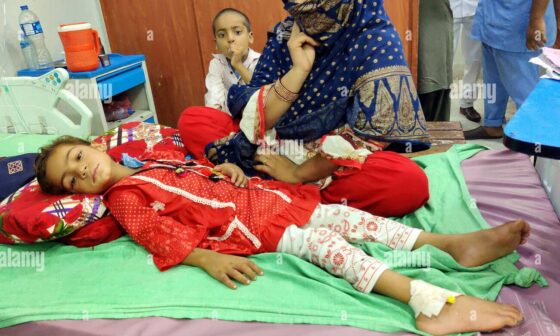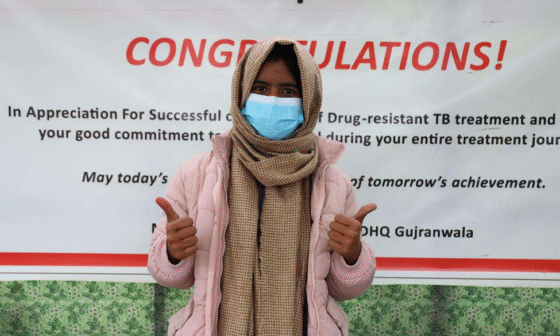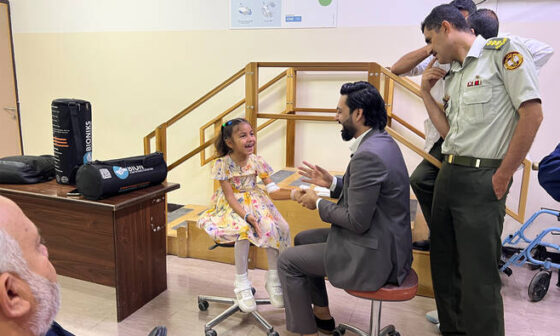Mental health remains one of the most misunderstood and neglected areas of healthcare in Pakistan. Despite increasing awareness globally, psychological disorders are still surrounded by stigma, shame, and misinformation in many communities. Conditions such as depression, anxiety, bipolar disorder, and schizophrenia are often dismissed as signs of personal weakness or attributed to supernatural causes. This cultural perception leads to delayed diagnosis, lack of treatment, and worsening of symptoms for millions of people. According to the Pakistan Association for Mental Health, nearly 24 million Pakistanis suffer from some form of mental illness, yet only a fraction receive proper care. The shortage of trained mental health professionals, combined with societal stigma, forces many to silently endure their struggles. Breaking these barriers is essential not just for individual well-being but also for building a healthier and more productive society.

Stigma and Taboos: The absence of mental health awareness in Afghanistan – Khaama Press
A powerful example of this stigma can be seen in the story of Ayesha, a 26-year-old university student in Lahore. After months of battling severe depression, she finally gathered the courage to tell her parents she needed professional help. Instead of receiving support, she was told to “be strong” and pray more, as her family believed depression was a sign of weak faith. Reluctant to seek therapy for fear of being labeled “mad,” Ayesha’s condition worsened until she stopped attending classes and isolated herself from friends. Eventually, a compassionate professor encouraged her to visit a mental health clinic discreetly, where she was diagnosed with major depressive disorder and began treatment. Ayesha’s journey highlights the double burden faced by many Pakistanis—fighting their illness while also battling society’s prejudices against mental health care.

Disability and Stigma – Family Therapy Magazine
Several cultural and structural factors contribute to the stigma around mental health in Pakistan. In many rural and urban communities alike, psychological disorders are seen as a source of family dishonor, leading families to hide affected individuals rather than seek treatment. Superstitions and spiritual explanations for mental illness are widespread, with some believing conditions like schizophrenia or epilepsy are caused by possession or black magic. This often drives families to seek help from faith healers instead of psychiatrists, delaying proper diagnosis. Additionally, the lack of mental health education in schools and the media perpetuates harmful myths. On a systemic level, there are fewer than 500 qualified psychiatrists for a population of over 240 million, making access to care extremely limited. Financial barriers and the absence of insurance coverage for mental health services further discourage people from seeking help.

People with Mental Health Conditions Living in Chains
The consequences of untreated mental illness are severe, affecting not only individuals but also families and communities. Depression and anxiety can lead to job loss, academic failure, and strained relationships. In extreme cases, untreated mental illness can contribute to suicide, which is an increasing but underreported problem in Pakistan. Women, in particular, face unique challenges, as postpartum depression and trauma from domestic violence often go unrecognized and untreated. Children with developmental disorders such as autism or ADHD are frequently labeled as “problematic” rather than receiving early interventions. Furthermore, the lack of mental health care increases the burden on general hospitals, as psychological distress often manifests as physical symptoms, leading to misdiagnosis and unnecessary treatments.

Mental health in Pakistan – British Asian Trust
Breaking the stigma surrounding mental health in Pakistan requires a multi-pronged approach. Public awareness campaigns can challenge misconceptions by emphasizing that mental illnesses are medical conditions, not personal failings or spiritual punishments. Schools and workplaces should include mental health education and counseling services to normalize discussions about emotional well-being. Training general physicians to recognize and manage common mental disorders can help bridge the gap caused by the shortage of psychiatrists. At the policy level, integrating mental health into primary healthcare systems and ensuring affordable access to therapy and medications is crucial. The media can play a vital role by portraying mental illness accurately in television shows and news reports, reducing harmful stereotypes. Religious leaders and community influencers can also be engaged to encourage compassionate attitudes toward those seeking help.

Mental Health Awareness – Best Psychiatrist In Lahore
Ayesha’s recovery demonstrates that mental health treatment works when stigma is removed. After months of therapy and medication, she was able to return to her studies and rebuild her social life. Her story serves as a reminder that mental illness does not define a person’s worth or potential—it is a treatable condition like any other health issue. By creating an environment of empathy, education, and accessible care, Pakistan can begin to dismantle the barriers that keep so many in silent suffering. Breaking mental health stigma is not just a medical necessity but a moral obligation to ensure that every individual has the right to live with dignity and hope.
References
- Pakistan Association for Mental Health (2023). “Mental Health Statistics and Treatment Gaps in Pakistan.”
- World Health Organization (2023). “Mental Health in South Asia: Challenges and Solutions.”
- Dawn News Health Report (2023). “Stigma and Suicide: The Silent Mental Health Crisis.”
- The Lancet Psychiatry (2022). “Mental Health Service Availability in Low-Income Countries.”
- Aga Khan University Research (2023). “Barriers to Mental Health Care in Urban and Rural Pakistan.”
- UNICEF Pakistan (2023). “Addressing Postpartum Depression and Maternal Mental Health.”
- Journal of Community Medicine (2022). “Faith Healing vs. Psychiatric Care: The Cultural Dilemma in Pakistan.”
Human Rights Watch Report (2023). “The Impact of Mental Health Stigma on Women and Children.”






